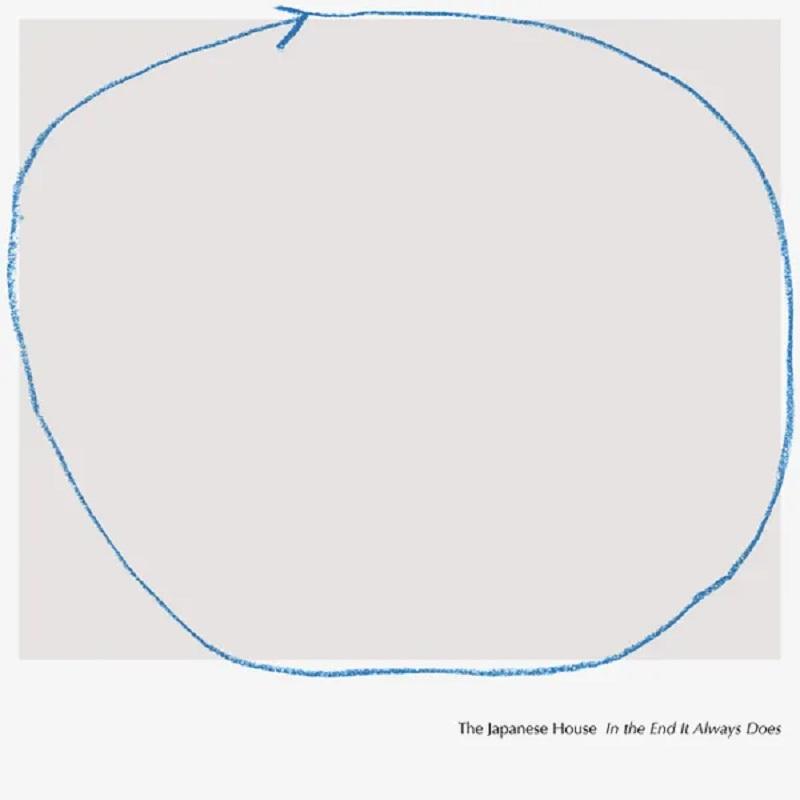
The Japanese House returns with an LP combining lofty pop melodies with introspective tales depicting an otherworldly snapshot in time.
From the gorgeously shimmering musing on drifting through a relationship in Lilo to the emotional rawness of losing someone you love on I Saw You in a Dream – which Amber Bain has since described as one of her favourite songs ever written – The Japanese House was introduced to the world on debut album Good At Falling as a creative vessel for Bain to experiment with brooding creativity atop electro-pop beats.
Not long after its spring release of course, a certain pandemic reared into view and changed life albeit temporarily into a ponderous, claustrophobic experience that saw Bain settle into Margate with two other love interests – co-existing in the same home with little else to do but explore an initially exhilarating high of shared love.
The subsequent dissolution of these partnerships due to little freedom of distraction usually bestowed by daily routine was the subject of a creative burst towards the end of 2021 – culminating in this release as a fascinating expression of vulnerability, underpinned by track after track of hypnotic tapestries of glistening alternative pop.
Opener Spot Dog sets the tone for a record themed in the unpredictable extremes of human existence, whether that’s musing on how everything that starts must always have an end or falling in love for it to ultimately dissipate.
Irregular opening piano notes lead into ethereal vocal cries of, ‘I don’t want to go yet, I don’t want to come yet’, before a breakdown of Twin Peaks-style backwards speech, warped instrumental and spritely guitar tones make for a ghostly introduction.
The seemingly upbeat Touching Yourself brings us back into more familiar territory, with Bain’s unique voice able to shift between pitches emotively yet maintain an almost auto-tuned layering of vocal harmonies. The track deals with unbearable longing, building to a soaring chorus and refrain that resembles HAIM at their playful, melodious best.
The tempo switches back to the introspective and away from the glittering, sunkissed textures on Over There, a teary ballad that Bain has referenced in interviews as, ‘That feeling that you used to be so close to someone and now they don’t even take their coat off when they come around, because they know they’re about to leave’.
As if taken straight from a soundtrack for a sombre indie romance movie, there’s plenty of striking metaphors in lines such as, ‘Walking by the seafront, sailing past a part of me’, that it’s difficult not to be pulled into the overwhelming sense of loss, as the steady drone of eighties synth adds to the enduring notion of the narrative.
The first single from the album, produced alongside The 1975’s George Daniel and Chloe Kraemer (Glass Animals, Rex Orange County), Boyhood is an exhilarating exploration of gender and self-discovery, where electro rhythms race underneath feverish lyrics, where Bain questions whether it’s worth changing yourself when seeking acceptance or simply embrace who you are.
An album of many high points sees a notable peak at Sunshine Baby; Matty Healy lends a vocal hand on this nostalgic dream pop gem showcasing Bain’s ability to craft straightforward, feelgood music – even though there’s always a hint of foreboding juxtaposition to the message conveyed.
With every line of joyful simplicity such as, ‘The feeling when the windscreen wipers line up with the song’, there’s a solemn undertone in lines such as, ‘Hold on to this feeling, because you won’t feel it for long’, the result feels like a pristine observation of navigating the complexities of modern love and the desire for finding your soulmate without it having to eventually slip from grasp.
The record ends with a contemplative acoustic segment, with closer One For Sorrow, Two For Joni Jones’ – rooted in the nursery rhyme ‘One for Sorrow’ in sentiment – signing off an authentic, accomplished body of work from an artist that continues to go from strength-to-strength.


